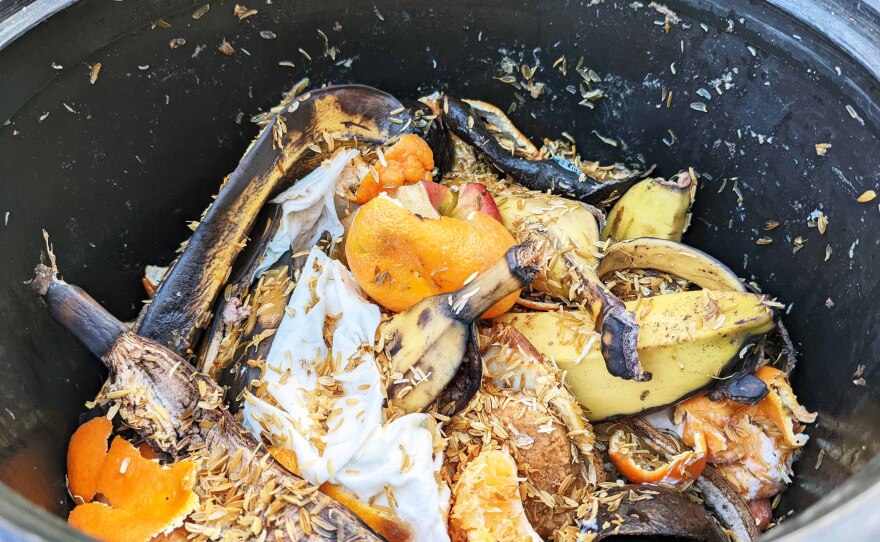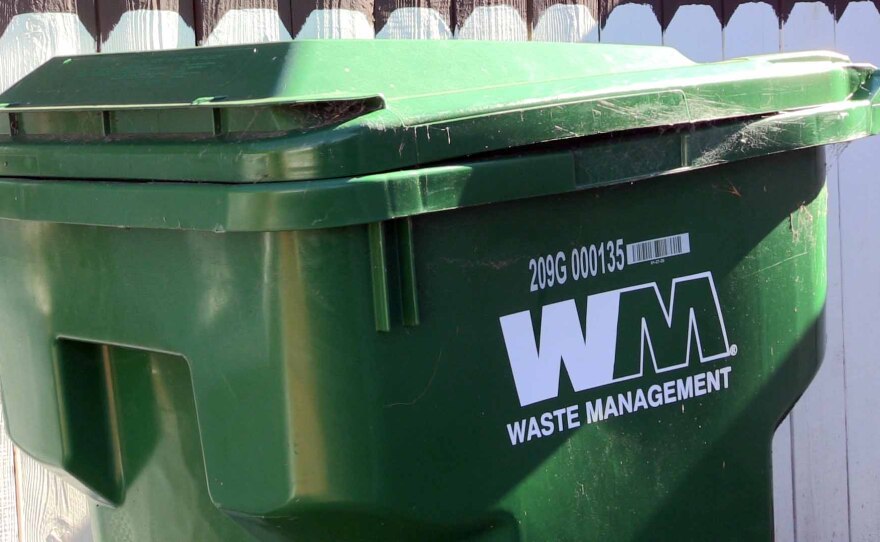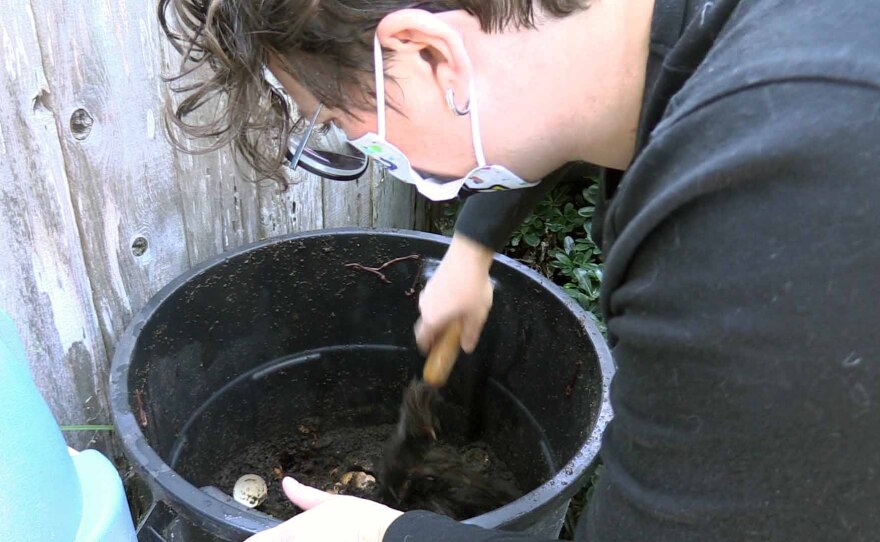Callie Kalinyuk has been composting for nearly a year with help from Oceanside.
The city offered free worm bins to residents interested in composting to reduce the number of food scraps, or organic waste, from ending up in landfills.
Organic waste, such as food and yard waste, make up about 56% of trash in landfills, according to CalRecyle, the state's recycling agency. Decomposing organic matters create methane, a potent greenhouse gas. Organic waste in landfills is responsible for 20% of the state's methane emission, third only to bovine flatulence and dairy manure — the state is cracking down on those, too.
That's why in September 2016, then-Gov. Jerry Brown signed SB 1383 into law, requiring cities to offer curbside pickup of organic waste by Jan. 1, 2022.
Kalinyuk thinks it's a great idea.
"I think it's a great opportunity for a lot of us to get rid of the amount of food waste that goes into our landfill," she said. "We only have a limited amount of space, and our worm bin can only eat so many organic veggies and fruits."
RELATED: What You Need To Know About Changes Coming To San Diego's Green Waste Recycling
The idea is that, come the new year, residents can dispose of their food scraps into the green yard waste bins, and they will be picked up with the weekly trash service. Some cities in Northern California, such as San Francisco, have already started doing this.

But, in San Diego, most cities and jurisdictions are not ready to roll off the service come the new year, such as Del Mar. Part of the reason has to do with contracts with the waste haulers for various cities.
Come Jan. 1, nothing will change for Del Mar residents until the city finalizes the contract with its waste hauler, Mayor Terry Gaasterland said.
"That timeline will be as soon as we have a new contract either with our current waste hauler or a new waste hauler. And that will be sometime in the first half of 2022," she said. "And at that point, people will be able to use their green bin, which is for landscape clippings and just start putting their food waste in there."
Other cities in North County are further along in the process. Oceanside, for example, is expected to finalize the contract with its waste hauler in January.
Waste Management, which services much of North County, said it is making sure it is compliant with SB 1383 at "an appropriate timeline" relative to the specifications of each of the cities within its jurisdiction.

The other problem is that not all residents have a green yard waste bin, especially in unincorporated parts of North County. Waste Management said it is working on getting bins to customers in those areas, such as Fallbrook and Bonsall.
There is a grace period for cities and counties to implement the law, and those not in compliance could face fines up to $10,000 a day by 2024. The goal is to reduce organic waste in landfills by 75% by 2025, which would have the same greenhouse-gas-reducing effect as removing 1.7 million cars from the road, according to CalRecycle.
Beyond the green bin problem, there is a concern about food scraps being placed in the yard waste bin attracting insects and rodents as well as the odor, said Jessica Toth, director of Solana Center for Environmental Innovation, a sustainability and conservation group based in Encinitas.
"Some of the haulers are allowing paper bags, compostable paper bags," she said. "I don't think any of them are allowing any kind of plastic bagging. And so that's really an issue both for residents and for businesses who are concerned about vectors."
RELATED: Garbage piles up as Republic Services sanitation workers' strike continues

But the biggest problem for San Diego as a region is capacity. The area generates 1.6 million tons of organic waste each year, and about half a million tons is food waste, Toth said.
"We only have a couple hundred thousand tons of capacity. So we have a very big shortfall," she said. "So even once this material is going to be collected. It's a question of where it's going to be processed."
The region does have composting and mulching program for yard waste, but because residents will now be able to comingle food waste with yard waste, there needs to be facilities and sites that can handle food wastes, which will require a higher level of permitting, Toth said.
Meanwhile, people interested in reducing organic waste can start composting on their own or join a composting program, such as one offered by Solana Center.
For Kalinyuk, who got into gardening at the start of the pandemic, her garden started producing more once she started composting.
"Our garden was a complete jungle," she said. "Everything took off. Everything was producing. We had so many tomatoes. We had so many melons. Everything was just going crazy."
Composting has done a lot in reducing her garbage, she said.





